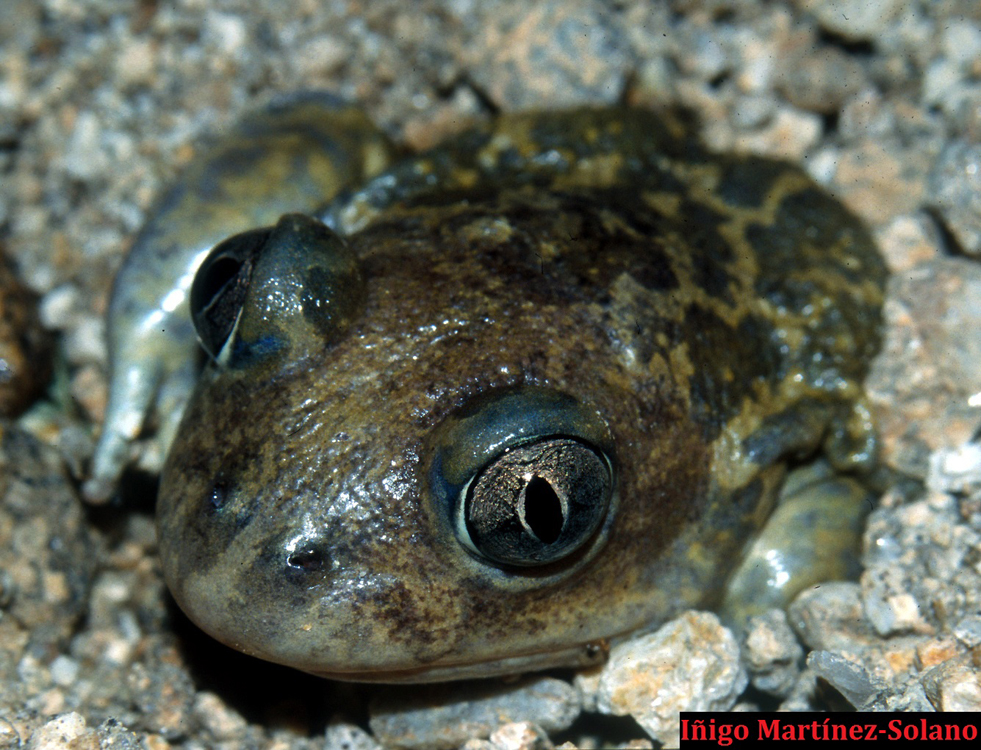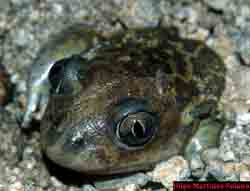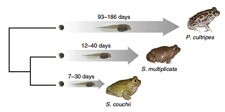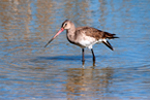Organisms react to environmental changes through plastic responses that often involve physiological alterations with the potential to modify life-history traits and fitness. Environmentally induced shifts in growth and development in species with complex life cycles determine the timing of transitions between subsequent life stages, as well as body condition at transformation, which greatly determine survival at later stages. This study shows that spadefoot toad larvae surviving pond drying and predators experienced marked alterations in growth and development, and in their fat reserves, oxidative stress, and relative telomere length. Tadpoles accelerated development but reduced growth and consumed more fat reserves when facing pond drying. However, oxidative stress was buffered by increased antioxidant enzyme activity, and telomeres remained unchanged. Predators caused opposite effects: they reduced larval density, hence relaxing competition and allowing faster development and enhanced growth of survivors. Tadpoles surviving predators metamorphosed bigger and had larger fat bodies, increasing their short-term survival odds, but showed signs of oxidative stress and had shorter telomeres. Developmental acceleration and enhanced growth thus seemed to have different physiological consequences: reduced fat bodies and body size compromise short-term survival, but are reversible in the long run, whereas telomere shortening is non-reversible and could reduce long-term survival. informacion[at]ebd.csic.es: Burraco et al (2017) Different effects of accelerated development and enhanced growth on oxidative stress and telomere shortening in amphibian larvae. Sci Rep doi:10.1038/s41598-017-07201-z
https://www.nature.com/articles/s41598-017-07201-z


 Different effects of accelerated development and enhanced growth on oxidative stress and telomere shortening in amphibian larvae
Different effects of accelerated development and enhanced growth on oxidative stress and telomere shortening in amphibian larvae

